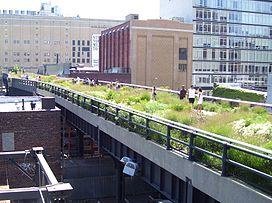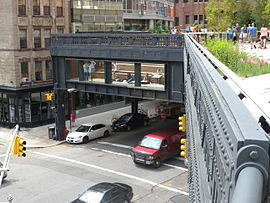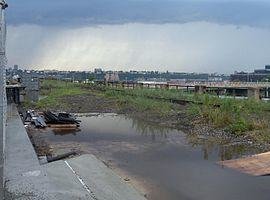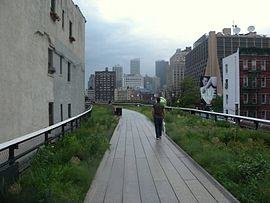Introduction
The High Line Park was conceived in 1999 within the New York City and currently run by the Friends of the High Lane. Currently, the park is a conservancy and a public space for the residents and visitors within New York City. The park has experienced transformation between the West 34th Street and West 30th Street.
However, several social concerns have been raised on this project. Thus, this analytical treatise attempts to review the social concerns of transformation of the High Lane into a public park.
Social concerns of the High Lane Park
Decision environment often experience dynamics and swings which create short and long term effect on chances of survival for two alternatives to solve a problem. When faced with a decision dilemma that requires critical assessments, analysis resorts to analytical tools that ensure competitive positioning advantage. However, there must be a clear justification for the decision through review of benefits and projected results of suggested decision.
In making the decision to either rebuild the High Lane Park in the city of New York, it is critical to review the benefits of the interested constituencies such as the city residents, the residents of those surrounding the city, the federal government, and the Mayor of the city. Stakeholders are individuals, groups or organisations with a stake/claim in a project’s outcome.
Generally, not all stakeholders will have the same objectives and motivations for a project. The first process of managing stakeholders is to identify them.
Overcrowding of Park Enthusiasts

Quality planning involves in identifying which quality standards are relevant to the project and determining how to satisfy them. It is one of the key facilitating processes during project planning and should be performed regularly and in parallel with the other project planning process. Due to its small size, the park is always full beyond its capacity.
This has been a concern especially to residents of the High Line settlement who were used to peaceful neighbourhood. The process of decision making is dependent on heuristic since it provides assumptions, integration of project organization framework, and ethical control.
Being a member of the High Lane residents’ constituency, the past experience of peaceful neighborhood inspired this concern. Besides, the cognitive biases have influenced the decision to establish the park.
Cultural Clash
Ethics determine the level of participation by the members of a constituency who after interaction with each other, identify hale and hearty social interventions passed through a feasibility test for implementation to initiate cultural shift among the primary stakeholder.
Besides, communication ethics define content policy based on the need to address rational and irrational habits in order to strike a balance on environmental friendly decision process. Besides, the target of this decision implementation is the entire hierarchy of constituency members from the top to the least at bottom of the ladder.
As a result of properly structured communication ethics, the decision environment becomes holistic, soft and socially friendly to the constituency members. Besides, healthy ethical communication culture creates structural goals which develop norms, expectations of specific behavior display, and appropriate guideline controlling interaction with one another.
The residents of High Line neighborhood have raised the social concern of interaction to unwelcomed culture such as cases of burglary within the park have increased. Besides, social perverts are often spotted in the park preying on their victims since there is very little presence of the authority.
Among the aspired ideals of the heuristic model in park rehabilitation includes the need for a constituency to strive to develop good culture by fostering a strong alignment on the monitored path of achieving its goals, missions and vision. This includes written rules of engagement, expected behavior, and repercussions for deviation. Each member of the constituency becomes part of the philosophy upon confirming allegiance.
Periodically, the constituency will subconsciously restructure these goals in consistency with the changing life demands. Consequently, when people are absorbed and made to feel part of these goals, they would strive to give their best towards the decision process.
Moreover, cooperation with the media has proven instrumental in creating awareness on magnitude and effects of hurricane on economic, social, and health sectors in order to prepare the residents of High line neighborhood psychologically for unprecedented losses in the form of future expansion. Many of the local residents live in a fear of permanent displacement since the current expansion strategy of the park is silent on possible need for further expansion of the park.
Unsustainable Expansion Plan
As human nature dictates, the park philosophy carries with it enticements. When these are timely discovered, they may lead to a deep attachment with the object over which such a decision motivation is given. When successfully carried out, emotional strains are kept at bay as constant interaction is a means of boosting confidence and personality a recipe for good organizational culture in the constituency.
In addition, this regulator manages unrealistic personal pressure among other excessive demanding thought system and personal cognitive factors inclusive of health issues, relationship and inability to adjust to sudden changes. Eventual resilience will vary depending on the period taken to implement the plan which may totally be different from another.
However, this must be accompanied by definite values as determined by the immediate neighborhood. Ironically, the park has led to relocation of the relatively poor members of the neighborhood since the land rates and house rates have skyrocketed. Instead, the relatively rich have taken over the neighborhood. As a result, the family of the High Line neighborhood has been disintegrated permanently.
Environmental Externalities
Basically, an externality in the field of environmental conservation and sustainability refers to any benefit or cost which happens due to an action or activity and it directly affects a third party who was not in any way involved and had not made the choice to bring upon yourself that benefit or cost. Reflectively, an externality is a secondary result of a primary action and may bring with it a benefits or a cost.
There are two types of externalities, that is, positive and negative externality. Negative externalities are accompanied by costs incurred while positive externalities are characterized by strings of benefits. An ideal example of a negative externality in the park project is the continuous uncontrolled pollution activities that directly causes air from the vehicles down the High Line.
As a result of the pollution, the whole community has to incur the cost of poor health and possible clean up to restore the clean environment, despite High Line being a park. Air pollution is a negative externality. Air pollution in the above scenario can be classified as a negative externality since it is accompanied by hidden costs such as health concerns that the entire High Line community has to incur despite being non parties in the pollution activities.
The community has to incur the cost of treating those affected by the pollution and has to live with the consequences that the pollution may put on them. In order to deal with this externality, the community should seek for compensation from the city of New York mayor.
Sustainable progress is an issue stirred by drift from an ideal thought to a supreme endeavor to tackle emerging problems of financial challenges and ecological problems. This category of revolution has endeavored to solve existing social problems. At present, people prefer eco-friendly programs when deciding recreational facilities to visit.

Inflated cost of living to the original residents
Reflectively, the principle of comparative advantage is a concept that connotes the desirable ability of an individual or nation to give a service at a relatively lower opportunity cost and marginal cost as compared to another who has the intention of giving the same service, in this case, the High Line Park.
Despite the fact the New York City may possess efficient factors for nearly all the park services as a result of its absolute advantage, the residents don’t seem to benefit since the park services are not affordable to the relatively poor persons in the neighborhood. Sustainability and sustainable development is a term mostly applied by urban planners’ inconsideration environmental and demographic factors which influences urban set up.
As compared to early population, the modern population has increased in population as well as change in their social economic activities. For this reason, urban planners must develop a mechanism to cater for space in the urban centers as well as the increase in trend over environmental pollution. In addition, the planners should address issues tied to social resources, pollution in the urban centers, climate changes and urban heat.
The High Line Park does not have a regulation policy that will ensure its sustainability amidst competing interests. Sustainable development should be created in a way that the short and long-term healthy growth of an urban center should be maintained.
This takes the aspect of effective and efficient control of pollution, proper housing to reduce congestion, good social ecology, better mechanisms of restoring natural resources and positive community interactions. For sustainable development to be carried out in the High Line Park a wide view of policies and plans must be put in place. Collaborative Strategic Goal Oriented Programming could be applied.
This program looks into analyzing decision making based on well assessed problem on the ground using any possible means. It has majorly been applied to large urban systems with problems. It has successfully been applied to the European urban development system and on the project of LUDA.

The planning system applies the social approach of uniting groups to unearth information and ideas on the problems affecting that particular urban area. Currently the issues for discussion in the High Line Park project include urban aesthetics and safety.
The visual impression in urban centers has become another important aspect of urban transformation. Safety on weather condition and other natural calamities like earthquakes are also emerging issues in the sustainable development plans of the High Line Park since it location and position is prone to weather disaster.

Addressing the social concerns
Actually, sustainability is a state of acquiring social, environmental, and economical expectations without compromising important aspects of life for future generation. Indeed, sustainable living therefore, is expressed as a situation of living in an innate sustainable and appealing facility distinct of ecological, financial, and conscious features.
Moreover, sustainable devise and sustainable progress are significant features in achieving sustainable living situation. Adaptation of sociological approach in environmental impact assessment recommendations should be inclusive of an environmental committee that would clear the weighty issues surrounding technical and institutional assumptions in establishing the third phase of the High Line Park.
Through this, the stakeholders will reach a compromising but satisfactory decision that will be influenced by participatory decision process, rather than adopting either a protagonist or antagonist stance in this multimillion dollar project. Thus, a wider scrutiny will encompass scientific and democratic purposes and concerns of the locals.
As a result, the common ground that is likely to be fostered by the above committee would be the stimulus of free activities and proactive engagements for all the interest institutions, persons, and extra-institutional groups. After reviewing several decisions and judgment on different cases on park management, sociological treatment would provide the most neutral ground for implementation of the third phase of the High Line Park.
The micro level analysis requires personalized approach which will indicate an imminent and forthcoming need for personnel who can function as safety engineers within the High Line Park.
Bibliography
Alan, Porter. Tech Mining to Drive Open Innovation. Georgia Tech: Technology Policy & Assessment Center, 2006. Web.
Appadurai, Arjun. Modernity at Large: Cultural Dimensions of Globalization. London: University of Minnesota, 2011. Web.
Appiah, Anthony. Cosmopolitanism: Ethics in a world of strangers. New York: Norton Company, 2011. Web.
Blauvelt, Andrew. Strangely Familiar: Design and everyday life. Minneapolis: Walker Art Center, 2011. Web.
Cascio, Jamais. Futures Thinking: Writing Scenarios. New York: FastCompan, 2010. Web.
Gray, Christopher. As High Line Park Rises, a Time Capsule Remains. New York: The New York Times, 2008. Web.
McDonough, William, and Braungarat Michael. Remaking the way we make things. New York: North Point Press, 2002. Web.
Moss, Jeremiah. The High Lane. New York: The New York Times, 2012. Web.